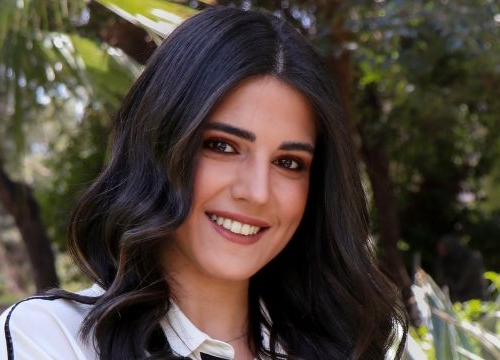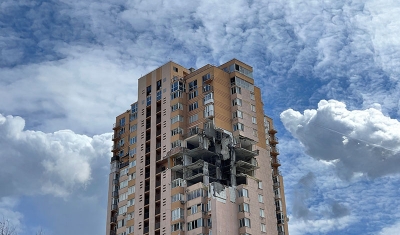Executive Master in International Law in Armed Conflict: What Participants Say
27 April 2021
Chantal Touma, from Syria, follows our Executive Master in International Law in Armed Conflict online while working as Legal Adviser at the International Committee of the Red Cross (ICRC) Legal Department in Damascus.
In this position, she provides legal consultations and analysis regarding various legal issues that might arise in ICRC’s operations in Syria. This involves research in national legislation and international law instruments along with presentation and dissemination of specific international humanitarian law (IHL) topics during external IHL courses.
Prior to that, Chantal completed an internship with the Norwegian Refugee Council in Syria and another internship at the ICRC Delegation in Syria. She holds a Bachelors Degree in Law from Damascus University in Syria.
Why did you choose the Executive Master in International Law in Armed Conflict?
During the conflict in my country, I witnessed the vast amount of legal issues arising from this exceptional situation. I realized that I needed to develop my knowledge not just in IHL, but in the entire international legal system which governs such situations. I wanted to use this knowledge not only to apply it to my current work in Syria but also to be able to someday influence the international community regarding post-violence development.
Does it respond to your expectations?
To be honest, this programme exceeded my expectations in numerous ways. It provides me with the comprehensive and detailed education I was aspiring to receive, and it teaches me critical thinking when using international law instruments to analyse events related to conflict on a practical level.
What are the highlights of the programme?
It is very difficult to select only a few, as all topics are fascinating and relevant. My highlights of the programme are learning the interplay between IHL and international human rights law (IHRL) when it comes to practical scenarios in armed conflict such as detention, right to life, counter-terrorism and the rules governing Jus ad Bellum.
How is distance learning?
At first, I thought distance learning was going to be an overwhelming challenge, but over time, I have come to realize that it is almost the same as attending the classes in person as it is very interactive. It is particularly convenient in a situation of a global pandemic and time-saving for a person who is maintaining a full-time job as well.
Can you easily manage following this programme and working at the same time?
Upon the commencement of the programme, I found it very difficult to adjust to working and learning at the same time since both demand high commitment. However, with the guidance of the teaching assistants throughout the programme, I learned how to better manage the content and my time. The subjects seemed a bit too complicated and scattered at the beginning but they all complement each other during the programme.
It is a juggling act that, once mastered, can be tremendously fruitful!
What will it bring to your career?
In the short run, I can already observe the added value it brings to my current job as a legal adviser as it strengthened my understanding of IHL and IHRL and I have been able to immediately apply this in my job.
In the long run, I hope that I can use this education to help my country through the aftermath of the conflict and to continue working as a legal adviser in other countries facing an armed conflict.
Would you recommend it?
I highly recommend this Executive Masters programme to anyone wishing to develop a legal career in armed conflicts while maintaining a job simultaneously. This programme is an opportunity to acquire high-quality education at a practical pace tailored to the life of a humanitarian practitioner.










